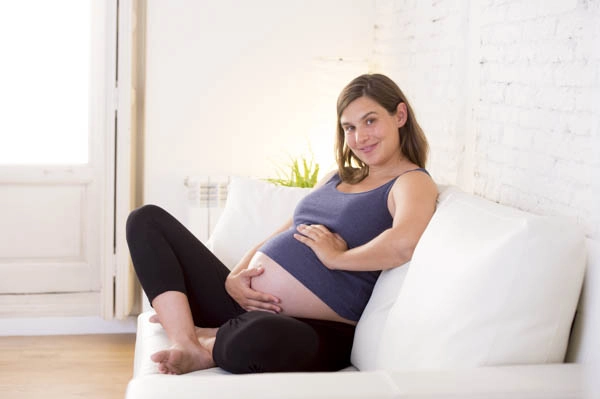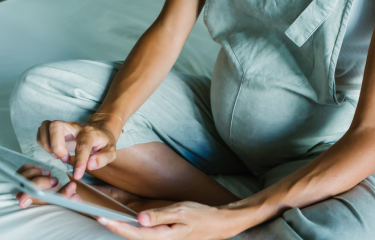FamiBlog
Calf cramps during pregnancy - where do they come from?
Pregnancy is a time when many different types of discomfort can occur. For some pregnant women they make everyday life a misery, for others they are practically non-existent. One symptom that many mums-to-be complain about is unpleasant calf cramps during pregnancy. Why do they occur and how can they be treated?

12 March 2024
Calf cramps during pregnancy - causes
Calf cramps during pregnancy can have various causes. In some women, they are associated with a lack of electrolytes, such as magnesium. Pregnancy is also a time when the enlarging uterine cavity, together with the baby, can exert pressure on the venous vessels, which impedes blood flow. In addition, the unphysiological curvature of the spine, which occurs in many expectant mothers, especially in the advanced stages of pregnancy, can lead to nerve compression and the occurrence of extremely painful calf cramps. Women who are overweight or obese are also more likely to complain of cramps.
Calf cramps during pregnancy - treatment
The immediate treatment for severe calf cramps is to massage the painful area and stretch the muscles. You can also apply a warm compress. Once the pain has disappeared, you should stand up and walk around for a while. For recurring calf cramps, a visit to the swimming pool or a physiotherapist can help.
However, if the pain is severe and does not disappear, it should be considered that it may not be related to a cramp in the calf muscles but is caused by a thrombosis. There is an increased risk of venous thromboembolism during pregnancy. In such a situation, it is essential to visit the hospital to diagnose thrombosis and initiate possible treatment.
Prevention of calf cramps during pregnancy
To prevent unpleasant calf cramps during pregnancy, it is definitely worth making sure you eat a healthy and balanced diet and keep your body hydrated. Experts recommend eating foods such as tomatoes, pulses, nuts and bran. Some expectant mothers like to take over-the-counter supplements, but these should not be taken without consulting a doctor.
Calf cramps can also be prevented by regular physical activity. Staying in one position for too long, especially sitting with one leg over the other, favours the unpleasant condition. It is also advisable to do exercises designed for pregnant women yourself or to take part in a group course for expectant mothers. In this way, you can practise physical activities that are safe for the baby's development under expert guidance.
A pregnant woman should also remember to wear comfortable, non-restrictive clothing and shoes. The sleeping position is also very important. Physiotherapists recommend that expectant mothers use a leg pillow when sleeping and lie on their side.
Sie interessieren sich auch für:
Intimate infections during pregnancy
Many expectant mothers struggle with the annoying symptoms of intimate infections during...
Sore throat during pregnancy
A sore throat is a relatively common condition that also affects pregnant women. However, not all...
Eating raw meat during pregnancy
During pregnancy, the expectant mother has many desires. But not all of them can be freely...
Stem cells and cord blood
Bone marrow was the primary source of stem cells (bone marrow transplantation involves...































